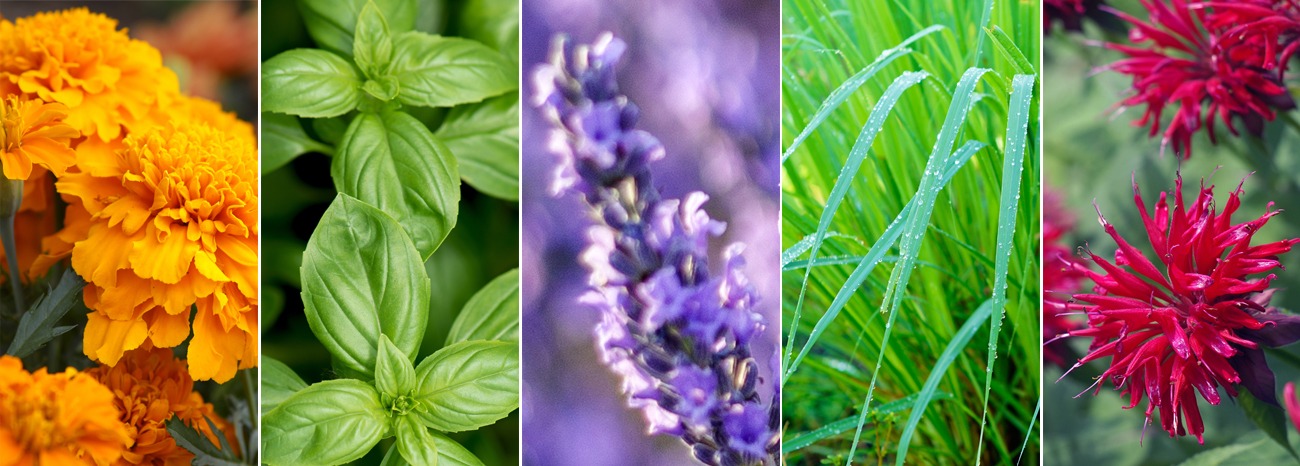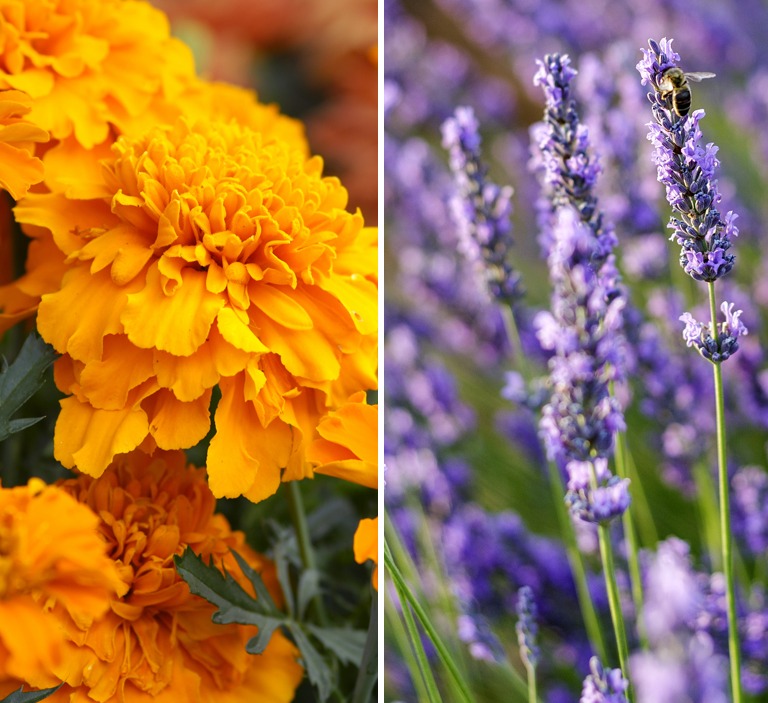As many of us have experienced, mosquitos are more than just a nuisance. They can spread diseases and even one mosquito bite can have you itching for days, turning your outdoor living space into a no-go zone. But don’t head inside just yet. Did you know that you can use plants as a natural repellent?
Using plants to repel mosquitos is a great eco-friendly pest control method that adds beauty to your yard. Much better than using toxic bug spray, it’s an easy and sustainable way to improve your outdoor experience.
In this article, we’ll explore how you can harness nature’s power to keep these pesky insects at bay.
Understanding Mosquitos
What draws mosquitos to humans in the first place? We are practically irresistible because mosquitos are attracted to body heat, the carbon dioxide we exhale and certain scents we emit.
Our best defense is a good offense. Mosquitos can’t stand intense heat, smoke or the scents from a number of plants. So in addition to making good use of your fire pit and a few citronella candles, strategically planting these specific plants in your garden can create a natural barrier against these pests.
Mosquito-repelling Plants
Here are some plants that mosquitos tend to avoid:
Citronella – Known as the mosquito plant, Citronella is a staple in many mosquito-repelling products such as candles and sprays. This hardy, perennial grass emits a strong aroma that mosquitos find offensive. Plant Citronella in large pots around your patio or other outdoor areas to help deter mosquitos. Note that the plant thrives best in full sun and well-drained soil.
Marigolds – These vibrant flowers are an excellent choice for repelling mosquitos. Marigolds contain Pyrethrum, a compound used in many insect repellents. The unique aroma of these flowers can ward off mosquitos and other garden pests. They’re perfect for borders and decorative containers.
Lavender – This beautiful, fragrant plant is loved by people, but hated by mosquitos. The essential oils in it can help mask your scent and make your yard less appealing to these pests. Lavender prefers full sun and dry, well-drained soil. You can also cut sprigs of lavender to bring indoors or use dried lavender to make sachets.
Lemon Balm – Also known as horsemint, Lemon Balm is a versatile plant that repels mosquitos but attracts pollinators like bees and butterflies. It’s fast-growing and drought-resistant, but be careful, as it can become invasive if not maintained.
Lemongrass – Lemongrass emits a citrusy aroma that we enjoy for its invigorating effects but it deters mosquitos. Beyond its scent, the stalks can be rubbed on the skin to act as a personal bug shield. Give some thought to where you plant lemongrass because it will grow tall and dense.
Peppermint – Peppermint has a strong fragrance that’s enjoyable for us but is overwhelming for mosquitos. Besides repelling mosquitos, you can also crush the leaves on your skin for added protection. Remember, peppermint is a vigorous grower and is best planted in pots to prevent it from taking over your garden.
Basil – Basil is a great choice for a mosquito-repelling plant. Mosquitos dislike the smell of this herb, and it has the added benefit of being a great addition to several dishes. Keep in mind that basil prefers plenty of sunlight and water.
Catnip – Beloved by cats and despised by mosquitos, catnip is a great choice for your garden. The natural oil within the plant, nepetalactone, is a potent mosquito repellant. However, be prepared for some feline visitors if you plant this in your garden!
Geranium (Pelargonium Citrosum) – This particular variety of geranium, often called the “mosquito plant,” is recognized for its mosquito-repelling effect. The leaves emit a scent that’s similar to citronella when crushed. They need plenty of sunlight and well-drained soil to thrive.
Rosemary – This aromatic herb isn’t just great for cooking; it’s also a potent mosquito deterrent. The woody scent of this plant is what keeps mosquitos at bay. Rosemary is a hardy perennial that thrives in containers and drought-like conditions, making it an excellent plant for dry landscapes and rock gardens.
Garlic – While we often use garlic to add flavor to our dishes, its potent smell is also a natural mosquito repellent. Planting garlic in your garden can help keep these pesky bugs away. Although it doesn’t have the most appealing smell, it’s an easy plant to grow, requiring little maintenance.
Floss Flower (Ageratum) – This plant secretes coumarin, which mosquitos find particularly offensive. It’s commonly used in commercial mosquito repellents. Floss flowers are attractive annuals with blue, pink, or white fluffy flowers that can add color to any garden while warding off mosquitos.
Pennyroyal – This member of the mint family is highly effective at repelling mosquitos. However, it’s important to note that pennyroyal should be used with caution as it can be toxic to pets and humans when ingested or applied to the skin. If used, it’s best to keep this plant in hanging baskets or high containers out of reach.
Patchouli – The patchouli plant emits a rich, earthy scent that humans love or hate. So if it’s among your favorites, by all means include it in your mosquito-repelling garden. Patchouli plants have broad leaves and can become quite large, so be sure to provide them with ample space in your garden or consider growing them in large pots.
Bee Balm (Monarda) – Bee balm is a great addition to any garden. It attracts pollinators like bees and hummingbirds while repelling mosquitos. This perennial plant, with its distinctive, aromatic foliage and bright flowers, thrives in sunny, dry areas.
Wormwood (Artemisia) – Wormwood’s silvery foliage and compact growing habit make it an attractive addition to your garden. However, its most significant feature is its ability to repel mosquitos. This perennial plant emits a strong antiseptic-like aroma that mosquitos find deterring. Be careful not to ingest wormwood, as it can be toxic.
For maximum mosquito deterrence, create your mosquito gardens in areas where you spend most of your time outdoors. Consider your climate zone when choosing these plants and follow appropriate care and maintenance guidelines.
Limitations of Using Plants for Mosquito Control
While these plants can help deter mosquitos, they might not be enough if you have a severe mosquito problem. In such cases, professional help may be necessary.
Pest Experts to the Rescue
While these plants can help deter mosquitos, they might not be enough if you have a severe mosquito problem. In such cases, professional help may be necessary.
At Moyer Pest Control, we offer comprehensive mosquito control services that can complement your natural plant repellents. Our highly-trained technicians take a complete control approach, using safe and effective resistant-proof treatments to keep mosquitos at bay, ensuring that you, your home and yard are thoroughly protected.
Learn more about how we can take care of your mosquito problem so you can get back to enjoying your outdoor spaces. Call us at 215.799.2010 or visit emoyer.com/mosquito.


